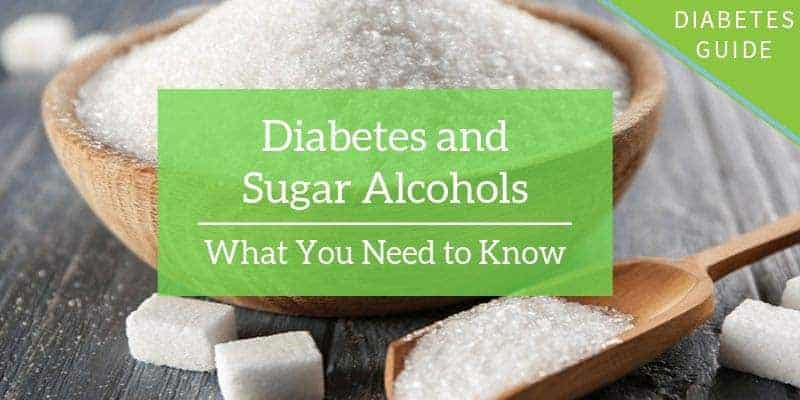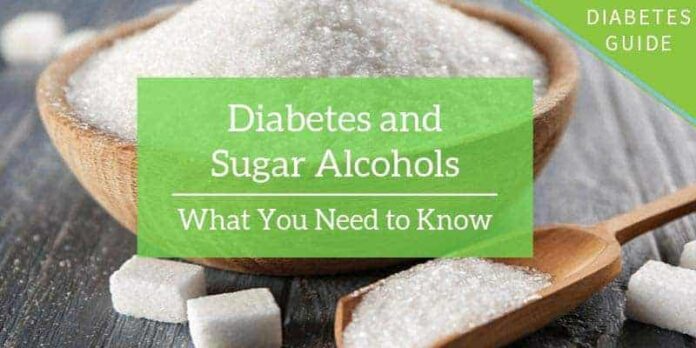In the event you’ve skilled even one Valentine’s Day or Christmas because you have been recognized with diabetes you then’ve probably eaten a number of of these “Sugar-Free Russell Stover’s” candies. They’re sweetened primarily with “sugar alcohols” with greater than 7 or 8 grams in every chocolate.
However sugar alcohols aren’t at all times a innocent substitute for sugar. And there’s a couple of sort.
On this article, we’ll take a look at what sugar alcohols are produced from, how they do or don’t impression your blood sugar, and the negative effects of consuming an excessive amount of of something containing sugar alcohols.
For a information to pure sweeteners, learn The Finest Sweeteners for Folks with Diabetes.
What are sugar alcohols?
Sugar alcohols aren’t truly sugar or alcohol. As an alternative, they’re a sort of carbohydrate whose chemical construction is comparable to each sugar and alcohol.
Discovered naturally in vegetation — vegetables and fruit — at this time’s sugar alcohols are usually manufactured from cheaper sources like sucrose, glucose, and starch.
The potential advantage of sugar alcohols for an individual with diabetes is that they don’t seem to be absolutely absorbed and digested by the physique, which implies you get the candy taste with out the complete serving of eventual glucose in your bloodstream.
Whereas all of them style “candy,” they don’t style equivalent to sugar. Some have a extra metallic, chemical, or iron-like style.
You may decide if a meals comprises sugar alcohols by trying on the vitamin panel — will probably be listed beneath “Complete carbohydrate” as “Sugar alcohols” or extra particularly by the precise sort of sugar alcohol. And by studying the checklist of components to determine precisely what sugar alcohol was used.
Nevertheless, not all sugar alcohols are created equal. Let’s check out the differing types.
Sorts of sugar alcohols
The sugar alcohols you’ve in all probability seen on older packaged “sugar-free” meals embody sorbitol and maltitol, however there are various totally different varieties.
- Erythritol: produced from wheat or corn, utilized in meals — thought of the most secure!
- Sorbitol: Made principally from potatoes, utilized in meals
- Lactitol: Comprised of whey (dairy), utilized in meals and as a laxative
- Maltitol: Comprised of wheat, tapioca, or corn, utilized in meals
- Xylitol: Comprised of birchwood, utilized in drugs and meals (*NOTE: Xylitol could be deadly if eaten by a canine! Steer clear of your pets — even sugar-free gum may very well be harmful.)
- Glycerol / Glycerin / Glycerine: used primarily in drugs, not meals
- Hydrogenated starch hydrolysates: produced from potato, corn, or wheat, utilized in meals
- Isomalt: Comprised of beets, utilized in meals
- Mannitol: Comprised of sugar, utilized in drugs and meals
How do sugar alcohols impression your blood sugar?
The impression of sugar alcohols in your blood sugar varies tremendously relying on which one you’re consuming. (Learn the components checklist and the vitamin panel to find out which one is in what you’re consuming!)
Basically, their calorie content material can vary from 1 to three energy per gram in comparison with 4 energy per gram for fundamental sugar.
Which means that sugar alcohols containing 3 energy per gram can have an effect on your blood sugar almost as a lot as common white sugar.
Erythritol comprises almost zero energy per gram and has turn out to be very fashionable in ketogenic and low-carb baking consequently.
Isomalt additionally comprises basically zero energy per gram and is utilized in many packaged “sugar-free” meals.
Sorbitol, maltitol, and hydrogenated starch hydrolysates, alternatively, comprise almost 3 energy per gram. These are each generally utilized in “sugar-free” chocolate, sweet, and different packaged meals.
The variety of grams of those sugar alcohols listed on the vitamin label received’t impression your blood sugar as a lot as the identical quantity in white sugar, however they will increase your blood sugar some.
One of the simplest ways to seek out out how a lot is to examine your blood sugar typically after consuming something containing sugar alcohol as its main sweetener.
Make a remark of how a lot insulin you took to cowl the carbohydrates listed on the vitamin label and/or how your blood sugar reacted throughout and after the primary 2 hours of consuming it.
Each different sugar alcohol falls someplace within the center, with round 2 energy per gram in comparison with white sugar’s 4 energy per gram.
Security and side-effects of sugar alcohols
Are sugar alcohols fit for human consumption? Briefly — sure — sugar alcohols are usually protected to devour; nevertheless, they need to be eaten in cautious moderation.
The negative effects of consuming sugar alcohols are known as “frequency-based adversarial results,” which implies that consuming an excessive amount of in someday or consuming them too typically all through a single week can result in some uncomfortable signs.
“Sugar alcohols are slowly and incompletely absorbed from the small gut into the blood,” explains the Meals and Drug Administration. “As soon as absorbed, they’re transformed to power by processes that require little or no insulin. A number of the sugar alcohol will not be absorbed into the blood. These go by way of the small gut and are fermented by micro organism within the massive gut.”
Frequent negative effects of consuming an excessive amount of sugar alcohol in someday are:
- Fuel
- Cramping,
- Unfastened stools
- Diarrhea.
The signs might final for a complete day whereas your digestive system is working the sugar alcohols out of your system.
Some individuals discover that the longer they proceed to devour meals containing sugar alcohols, the less uncomfortable digestive signs they expertise.
Really helpful every day consumption of sugar alcohols
There isn’t any clear consensus on the really helpful max every day consumption of sugar alcohols.
The Meals and Drug Administration (FDA) requires all meals that will trigger you to devour greater than 50 grams of sorbitol in someday have the label: “Extra consumption could have a laxative impact”.
Sorbitol is among the harsher sugar alcohols in your digestive system.
Whereas there aren’t particular suggestions for each sort of sugar alcohol, a restrict of fifty grams is a smart amount to use throughout the board.
Must you embody sugar alcohols in your food regimen as an individual with diabetes?
This can be a very private choice. For some, baking with erythritol is what makes them be ok with having fun with desserts, and helps them obtain their blood sugar objectives with out feeling disadvantaged.
For others, sugar substitutes aren’t well worth the digestive troubles, the funky aftertaste, or the general feeling of consuming a “pretend” model of the true factor.
After all, give sugar alcohols a attempt! You may’t know in the event that they’re a great match for you and your diabetes objectives till you attempt them.


